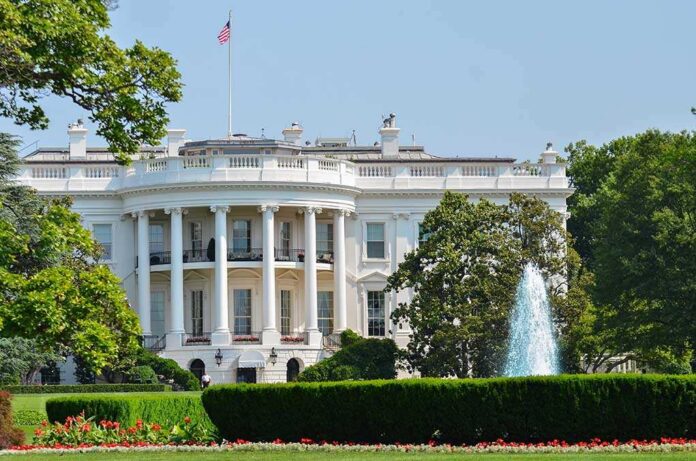
Amazon’s bold consideration of displaying tariff increases directly to consumers has ignited a firestorm of reactions amid ongoing trade tensions.
Quick Takes
- Amazon considered, then rejected, the idea of showing tariff costs on product listings.
- Critics, including Karoline Leavitt, view this transparency move as potentially alienating consumers.
- The White House labeled Amazon’s plan as a “hostile and political act.”
- Senate Minority Leader Chuck Schumer supports companies disclosing tariff impacts.
Amazon’s Proposed Tariff Transparency
Amazon recently considered implementing a system to display tariff charges directly on product listings. The plan, which was only discussed for the Amazon Haul store and denied for regular deployment, was met with significant scrutiny from various stakeholders. This proposed transparency sought to show consumers the direct impact of trade policies on purchasing costs, a move that sparked debate over corporate responsibility and consumer rights.
President Trump personally contacted Amazon’s founder, Jeff Bezos, to admonish the retailer over such moves. The White House sternly criticized Amazon, calling the decision both “hostile and political,” an unusual diplomatic standoff amidst heightened trade tensions. In response, Amazon clarified that the proposal was an internal consideration and never part of a strategic rollout plan.
Backlash and Support
Karoline Leavitt, among others, sharply opposed Amazon’s potential step, labeling it as a political maneuver that unfairly targets the Trump administration. “This is a hostile and political act by Amazon,” said Leavitt. “Why didn’t Amazon do this when the Biden administration hiked inflation to the highest level in 40 years?” Conversely, individuals like Chuck Schumer argue that consumers deserve full disclosure of how tariffs affect prices.
Other e-commerce platforms, such as Shein and Temu, have already adjusted pricing to reflect tariff impacts. Temu, notably, incorporates tariffs at checkout, illustrating varied corporate responses within the industry. This points to a broader principle—whether the burden should be transparently shown or remain absorbed within corporate margins.
Amazon's plan to show the extra cost of goods due to tariffs is a "hostile act," Trump's spokeswoman said. Amazon shares in response: pic.twitter.com/9tN4Fjelpm
— Lisa Abramowicz (@lisaabramowicz1) April 29, 2025
Implications for Trade and Corporate Policy
While Amazon’s stock took a minor hit in the aftermath, the broader implications lie in how corporations communicate fiscal realities borne from governmental policy enactments. Tariff transparency presents inherent risks, potentially desensitizing consumers to complex trade issues, but also highlights corporate agility in policy adaptation. The unfolding dialogue underscores a pivotal moment in market dynamics, where consumer knowledge of policy ramifications directly influences purchasing decisions.
Amazon’s navigation through the intricate web of tariffs, consumer sentiment, and political tides will be closely watched as trade negotiations continue. Movements made by global e-commerce giants like Amazon, coupled with governmental reactions, profoundly affect economic and policy landscapes. As such, Amazon’s stance may well redefine how multinational corporations address complex fiscal impacts with their audience.
Sources:
- Trump called Jeff Bezos after learning Amazon considered breaking out a tariff charge
- Furious Trump calls Jeff Bezos over ‘politically hostile’ Amazon plan to advertise tariff surcharge on goods
- Amazon denies tariff pricing plan after White House calls it “hostile and political”
- Amazon Reportedly Floats Plan To Show Tariff Price Increases To Shoppers — Karoline Leavitt Calls It ‘Hostile’ Move | The Daily Caller












